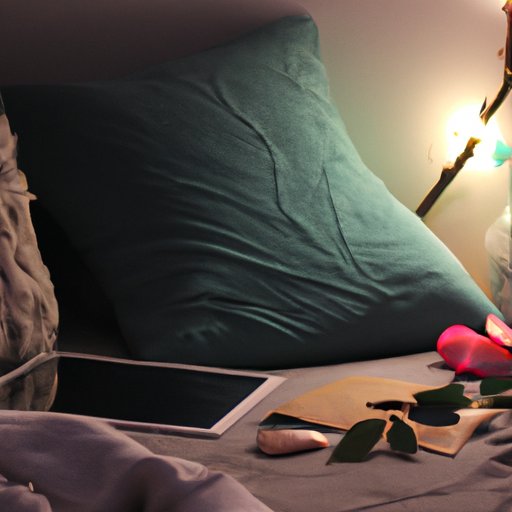
How to Fall Back Asleep: Tips and Tricks to Help You Sleep Better
Sleep is essential for our health and well-being. However, sometimes we might wake up in the middle of the night and struggle to fall back asleep. This can lead to fatigue, anxiety, and irritability the next day. If you’re experiencing difficulty falling back asleep, don’t worry, you’re not alone. In this article, we’ll explore some tips and tricks you can use to help you fall back asleep.
Create a Bedtime Routine
Establishing a routine can signal to your body that it’s time to sleep. A bedtime routine can include activities such as taking a warm bath, reading a book, or meditating. Incorporating calming activities into your routine can help you relax and fall asleep more easily.
Try Relaxation Techniques
Relaxation techniques such as breathing exercises, progressive muscle relaxation, and visualization can help reduce stress levels, ease anxiety and make it easier to fall asleep. These techniques involve focusing your attention on different parts of your body or your breath, which can distract your mind from racing thoughts and help you let go of tension.
Consider a Sleep Aid
If you have tried other methods and still have difficulty falling asleep, you might consider a sleep aid. Natural sleep aids like Melatonin or Valerian root can help as a last resort. Before taking any medication or supplements, make sure to discuss it with your doctor.
Avoid Screens Before Bed
The blue light emitted by screens can disrupt the natural sleep cycle by suppressing the production of Melatonin, which is a hormone that regulates sleep. To avoid this, try to stop using devices at least an hour before bedtime or use a blue light filter.
Create a Comfortable Sleep Environment
A cool, dark, and quiet bedroom environment can help enhance relaxation and promote sleep. To achieve this environment, consider using blackout curtains, earplugs, or a white noise machine to block out any light or noises that might disrupt your sleep.
Don’t Force It
Trying to force yourself back to sleep can often make it harder, instead try engaging in a calming activity like reading or listening to soft music. Doing this can take your mind off any thoughts that are keeping you awake and may help you relax.
Conclusion
Getting a good night’s sleep is essential for our health and well-being. If you’re experiencing difficulty falling back asleep, try implementing a pre-sleep routine, relaxation techniques, and creating a comfortable sleep environment. Additionally, consider using natural sleep aids as a last resort, but always discuss it with your doctor first. By taking these steps, you can fall asleep faster and wake up feeling refreshed and energetic.





